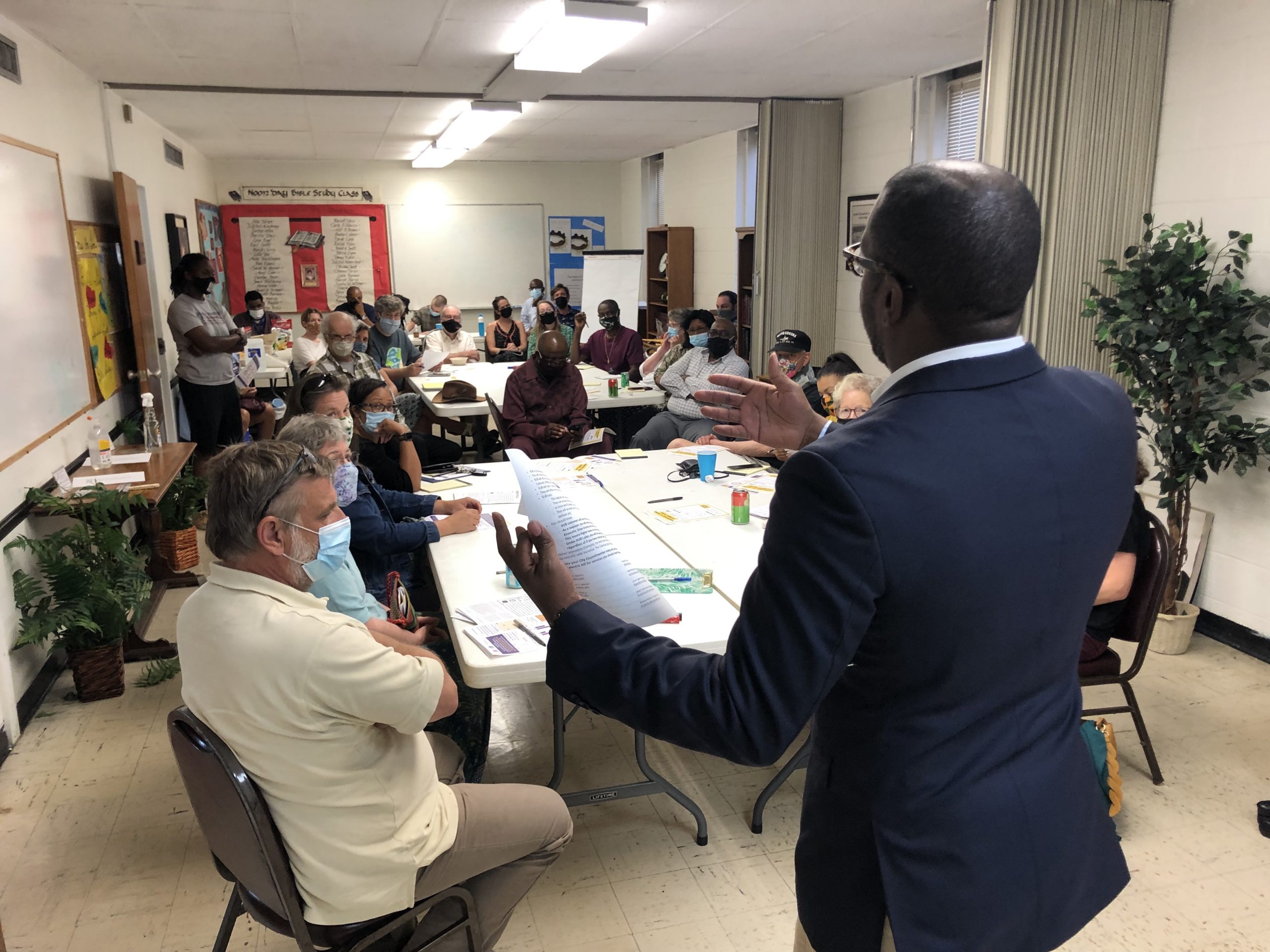Research shows nearly a quarter of Knoxville households are utility burdened, meaning they pay more than 10% of their income on KUB bills, including 40% of Black households. Coalition forms to call for a solution to stem utility disconnections for those who are unable to afford KUB bills.
Guest Blog | July 2, 2021 | Energy Justice, Tennessee, UtilitiesThis blog post was written by Brady Watson, former Civic Engagement Coordinator for the Southern Alliance for Clean Energy.
On Thursday, June 24 the Knoxville Water and Energy for All (KWEA) coalition, which the Southern Alliance for Clean Energy (SACE) is a part of, held a summit to discuss KUB research findings from data provided by KUB and a separate survey conducted by Community Voices that aimed to show how many customers bore the burden of unaffordable utilities – including that nearly a quarter of Knoxville households pay more than a tenth of their income to KUB. As a result of the findings, the KWEA coalition launched a campaign calling on the Knoxville Utilities Board (KUB) to end utility service disconnections and provide more affordable utilities for low-income households.
The coalition is made up of many of the same groups from the ACT on KUB campaign – including Appalachian Voices, One Knox Legacy Coalition, Sierra Club Harvey Broome Group, and Statewide Organizing for Community Empowerment (SOCM) – which launched last year in an effort to bring more accountability, cost-savings, and transparency to KUB. More than 30 Knoxvillians attended the June 24 press conference and workshop that followed to learn more about KUB’s practices, and how the community can work together to enact positive change at the public utility. You can view a recording of the press conference at this link.

“Too many families, especially in Black and brown communities, get disconnected from KUB utilities because they don’t have enough income to pay their bill,” said Bri Knisley, Tennessee Campaign Manager for Appalachian Voices. “Punishing households that can’t afford bills by disconnecting them is unjust, and it’s a problem that groups are mobilizing around across the country. Energy and water access is a basic human right, and we need a solution to unaffordable bills and disconnections at KUB.”
Disproportionate utility burden on communities of color
As SACE has learned over several years of work around KUB utility bills, there are many in Knoxville who struggle to pay their bills and keep the lights on. KWEA researchers led by Erin Rose of Three Cubed analyzed census tract data shared by the utility and the results are striking. The research showed that 23% of Knoxville households are utility burdened, which means that they pay more than 10% of their income on KUB bills, including 40% of Black households.
Though KUB paused disconnections for nonpayment during the COVID pandemic and provided some bill assistance, many low-income households remained past due on their KUB accounts when disconnections resumed in October of 2020. In fact, the researchers found that between October of 2020 and February of 2021, more than 3,000 Knoxville households were disconnected from power and water. Furthermore, when the moratorium on disconnections was lifted in October of 2020, 24% of households in majority non-white census tracts were past due, while 11% of households in low-income, majority-white census tracts were past due. Finally, communities of color owed 200% more in past due amounts than white communities.
“Despite the dedicated efforts of community organizations and KUB staff, more than 3,000 households have been disconnected from power and water during the pandemic and thousands more continue to experience the burden of unaffordable utilities,” said Rose. “We know that this burden is not equally distributed across our communities.”

During the workshop session, a community member pointed out that while 3,000 households had been disconnected, the number of impacted individuals was likely higher considering many households are home to multiple people. Coalition member Oslo Cole also suggested that by losing access to electricity, students who rely on the internet to complete homework may lose access, and seniors who rely on electricity for medical equipment could face health risks.
PIPP program suggested as a possible solution
As one possible solution, the coalition members suggested KUB adopt what is known as a Percentage of Income Payment Plan or PIPP, which would be aimed at low-income households as defined by federal poverty guidelines, and reduce utility bills for participating households to 10% or less of their income. This kind of program has been successfully implemented in other states and can significantly ease the burdens facing many residents. Such a program would ensure that utility bills of Knoxvillians living in poverty would remain affordable regardless of future KUB rate hikes.
“As a faith leader, I am well aware of the moral obligation we have to ensure the wellbeing of all neighbors,” said Rev. Calvin Taylor Skinner of Mt. Zion Baptist Church. “PIPP is an approach that is proven to help alleviate a huge burden many Black and Brown households face. The power is with the people. The more we embrace this power, the more we will discover sustainable solutions to the challenges our residents face in Knoxville.”
Several KUB staff members were in attendance at the meeting, and community members discussed possible strategies to continue the conversations with KUB about making utility bills more affordable. Stay tuned here for future developments with the KWEA campaign. For more information about KWEA and to get involved visit knoxvillewea.org or email [email protected].